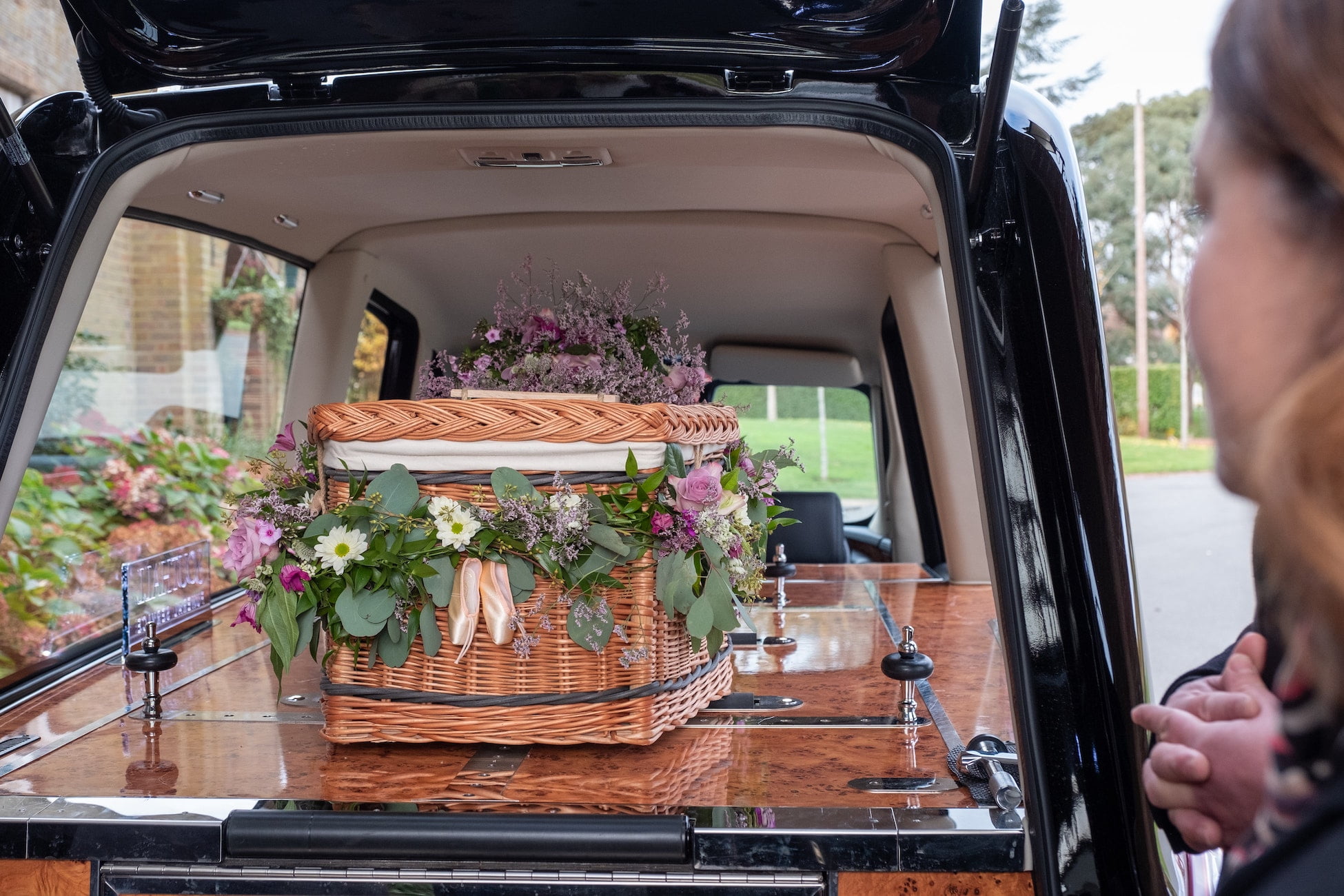If you're the surviving spouse of a reverse mortgage borrower, you may be wondering how the loan works when the borrower dies. This can be a difficult question to answer, as there are many different ways that a reverse mortgage can be structured. In this blog post, we will take a look at how a reverse mortgage works when the borrower dies, and explore some of the options available to surviving spouses.
How Does a Reverse Mortgage Work When You Die Table of Contents
How Does a Reverse Mortgage Work When You Die Table of Contents
What Are the 3 Types of Reverse Mortgages?
How Long Do You Have to Pay Off a Reverse Mortgage After Death?
How Does a Reverse Mortgage Work if There Are Two Borrowers?
What Happens if the Heirs Do Not Want to Keep the Home?
What Happens if There is Not Enough Money to Pay Off the Loan After Death?
Does a Reverse Mortgage Go Through Probate?
What Happens if You Don't Pay Back a Reverse Mortgage?
Who Is Responsible for Reverse Mortgage After Death?
What Are The Downsides to a Reverse Mortgage?
What Additional Fees Come With a Reverse Mortgage?
What is The Upfront Mortgage Insurance Premium On a Reverse Mortgage?
How Does a Reverse Mortgage Work When You Die Table of Contents
What Are the 3 Types of Reverse Mortgages?
How Long Do You Have to Pay Off a Reverse Mortgage After Death?
How Does a Reverse Mortgage Work if There Are Two Borrowers?
What Happens if the Heirs Do Not Want to Keep the Home?
What Happens if There is Not Enough Money to Pay Off the Loan After Death?
Does a Reverse Mortgage Go Through Probate?
What Happens if You Don't Pay Back a Reverse Mortgage?
Who Is Responsible for Reverse Mortgage After Death?
What Are The Downsides to a Reverse Mortgage?
What Additional Fees Come With a Reverse Mortgage?
What is The Upfront Mortgage Insurance Premium On a Reverse Mortgage?
What Happens to My Mortgage Insurance Premium When I Die?
Who Owns the House in a Reverse Mortgage?
What is a Reverse Mortgage?
A reverse mortgage is a type of home loan that allows homeowners who are 62 and older to convert their home equity into cash. The amount of equity you can access depends on your age, how much equity you have in your home, and the type of reverse mortgage you choose.
With a traditional mortgage, you make monthly payments to your lender. With a reverse mortgage, your lender makes payments to you. You can use this money however you want – to cover expenses, supplement your income, or pay for healthcare costs. The only condition is that you must live in your home as your primary residence.
What Are the 3 Types of Reverse Mortgages?
There are three types of reverse mortgages: single-purpose, federally insured, and proprietary.
Single-purpose Reverse Mortgages
Single-purpose reverse mortgages are the most popular type in Texas.
Home Equity Conversion Mortgages (HECMs)
Federally insured reverse mortgages, also known as Home Equity Conversion Mortgages (HECMs), are insured by the Federal Housing Administration (FHA).
Proprietary Reverse Mortgages
Proprietary reverse mortgages are private loans that are not insured by the government.
How Does a Reverse Mortgage Work When You Die?
If you have a reverse mortgage and you die, your heirs will need to repay the loan. If your estate can't cover the debt, your home will be sold to repay the lender. If there's still money owed after the sale, your heirs won't be responsible for it.
If you have a reverse mortgage and you die, your heirs will need to repay the loan. If they don't want to keep the home, they can sell it to repay the debt. If the sale doesn't cover the entire loan balance, your heirs won't be responsible for paying the difference.
Reverse mortgages can be a good way to supplement your retirement income, but it's important to understand how they work before signing on the dotted line.
How Long Do You Have to Pay Off a Reverse Mortgage After Death?
If you have a reverse mortgage and die, your heirs will have a certain amount of time to pay off the loan. This time frame is typically set by the lender, and can range from six months to a year. If they are unable to pay off the loan in that time, the home will go into foreclosure.
How Does a Reverse Mortgage Work if There Are Two Borrowers?
If there are two borrowers on a reverse mortgage and one dies, the surviving borrower can continue living in the home as long as they meet the terms of the loan.
This includes continuing to make property taxes and homeowners insurance payments, as well as maintaining the home according to FHA guidelines. If they do not meet these requirements, the loan will become due and payable.
What Happens if the Heirs Do Not Want to Keep the Home?
If the heirs of a reverse mortgage borrower do not want to keep the home, they can simply hand over the keys to the lender.
The loan will then be satisfied and they will not be responsible for any remaining balance. Another option is to sell the home in order to pay off the loan. If there is still a balance remaining after the sale, the heir(s) are responsible for paying it off.
What Happens if There is Not Enough Money to Pay Off the Loan After Death?
If there is not enough money to pay off the loan after death, your heirs may still be able to keep the home.
This is because reverse mortgages are non-recourse loans, which means that the lender cannot go after your heirs for any remaining balance. The only thing they can do is foreclose on the property.
Does a Reverse Mortgage Go Through Probate?
No, a reverse mortgage does not go through probate. If you have a reverse mortgage and you die, the loan will be paid off by your estate using other assets first. Probate is only required if there are no other assets in your estate to pay off the loan.
What Happens if You Don't Pay Back a Reverse Mortgage?
If you die without paying back your reverse mortgage, the loan becomes due and payable. This means that your estate or your heirs will have to repay the loan in order to keep the property. In most cases, the amount owed on a reverse mortgage is more than the value of the property, so it's important to have a plan in place for how the loan will be repaid.
There are a few options for repaying a reverse mortgage when you die:
- Your heirs can sell the property to repay the loan.
- Your heirs can refinance the mortgage and pay off the debt with a new loan.
- Your estate can use other assets to repay the loan.
If your heirs are unable to repay the loan, the lender may foreclose on the property. This means that the property will be sold in order to repay the debt. If the sale of the property does not cover the entire amount owed on the loan, your heirs will still be responsible for paying back the difference.
It's important to discuss your reverse mortgage with your heirs and make sure they are aware of how the loan works and what their options are for repaying it if you die. Having a plan in place can help ease the burden on your loved ones after you're gone and ensure that they don't lose your home.
Who Is Responsible for Reverse Mortgage After Death?
This is an important question to answer because, depending on your situation, different people may be responsible for paying off your reverse mortgage after you die. If you have a spouse or children, they may be responsible for paying off the loan. However, if you are single or have no heirs, the responsibility falls to your estate.
It's important to remember that a reverse mortgage is a loan, and like any other loan, it must be paid back eventually. When you die, your estate is responsible for repaying the loan in full. This can often be done by selling the home and using the proceeds to pay off the balance of the loan. However, if your home is worth less than what you owe on the loan, your heirs may be responsible for paying the difference.
If you're considering a reverse mortgage, it's important to understand how they work and what your responsibilities will be after you die. By understanding how a reverse mortgage works when you die, you can make sure that your loved ones are prepared financially if something happens to you.
What Are The Downsides to a Reverse Mortgage?
As with any financial product, there are some downsides to reverse mortgages that you should be aware of before you decide if one is right for you. One downside is that interest on a reverse mortgage accumulates over time, which can erode the equity in your home. Additionally, if you move out of your home or sell it, you may have to repay the loan in full.
Another potential downside is that a reverse mortgage could limit your ability to get traditional financing in the future should you need it. So, if you're considering taking out a reverse mortgage, make sure to speak with a financial advisor first to see if it's the right move for you.
Assuming that a borrower dies after 12 months and leaves no heirs, the servicer will initiate a foreclosure. The home is then sold and proceeds are used to repay the reverse mortgage. If there are any leftover funds, they go to the estate. If the sale of the home does not cover the balance of the loan, FHA insurance will cover the difference.
What Additional Fees Come With a Reverse Mortgage?
Reverse mortgages do come with some additional fees that you should be aware of. These include:
- An origination fee
- A servicing fee
- A mortgage insurance premium (MIP)
While these additional fees may seem like a lot, they are typically much lower than the fees associated with a traditional forward mortgage. Additionally, many of these fees can be rolled into the loan itself, so you don’t have to worry about coming up with the cash upfront.
If you’re considering taking out a reverse mortgage, it’s important to work with a reputable lender who can help you understand all of the costs involved.
What is The Upfront Mortgage Insurance Premium On a Reverse Mortgage?
The upfront mortgage insurance premium (MIP) is how the Federal Housing Administration (FHA) protects lenders from some or all of the loss that can occur when a borrower defaults on their loan.
The MIP is equal to two percent of the maximum claim amount, which is determined by the younger spouse's age, the current interest rate, and the appraised value of your home.
For example, if you have a home with an appraised value of $200,000 and you get a reverse mortgage with an interest rate of four percent, your maximum claim amount would be $172,223. This means that your upfront MIP would be $345.
What Happens to My Mortgage Insurance Premium When I Die?
Your mortgage insurance premium (MIP) is an insurance policy that protects your lender in case you default on your loan. If you have a government-backed loan, like an FHA loan, your MIP will be automatically canceled when you reach 22% equity in your home. For all other loans, including those backed by the VA and HUD, your MIP will remain in place for the life of the loan.
If you have a government-backed loan, your MIP will be automatically canceled when you die. Your family will not be responsible for paying off the mortgage insurance premium. For all other loans, including those backed by the VA and HUD, your MIP will remain in place for the life of the loan. If your family members want to keep the home after your death, they'll need to continue paying the MIP.
Who Owns the House in a Reverse Mortgage?
In a traditional mortgage, the homeowner owns the house and makes monthly payments to the lender. In a reverse mortgage, however, the situation is reversed. The lender owns the house and the borrower pays monthly payments to the lender. If the borrower dies, ownership of the house goes to the heirs unless they can repay the loan in full.
If you have a reverse mortgage and you die, your heirs will need to decide what to do with your home. They can:
- Sell your home and use the proceeds from the sale to pay off your loan balance;
- Continue making monthly payments on your loan until it reaches its maturity date; or
- Let your home go into foreclosure if they can't afford to make monthly payments on your loan.













